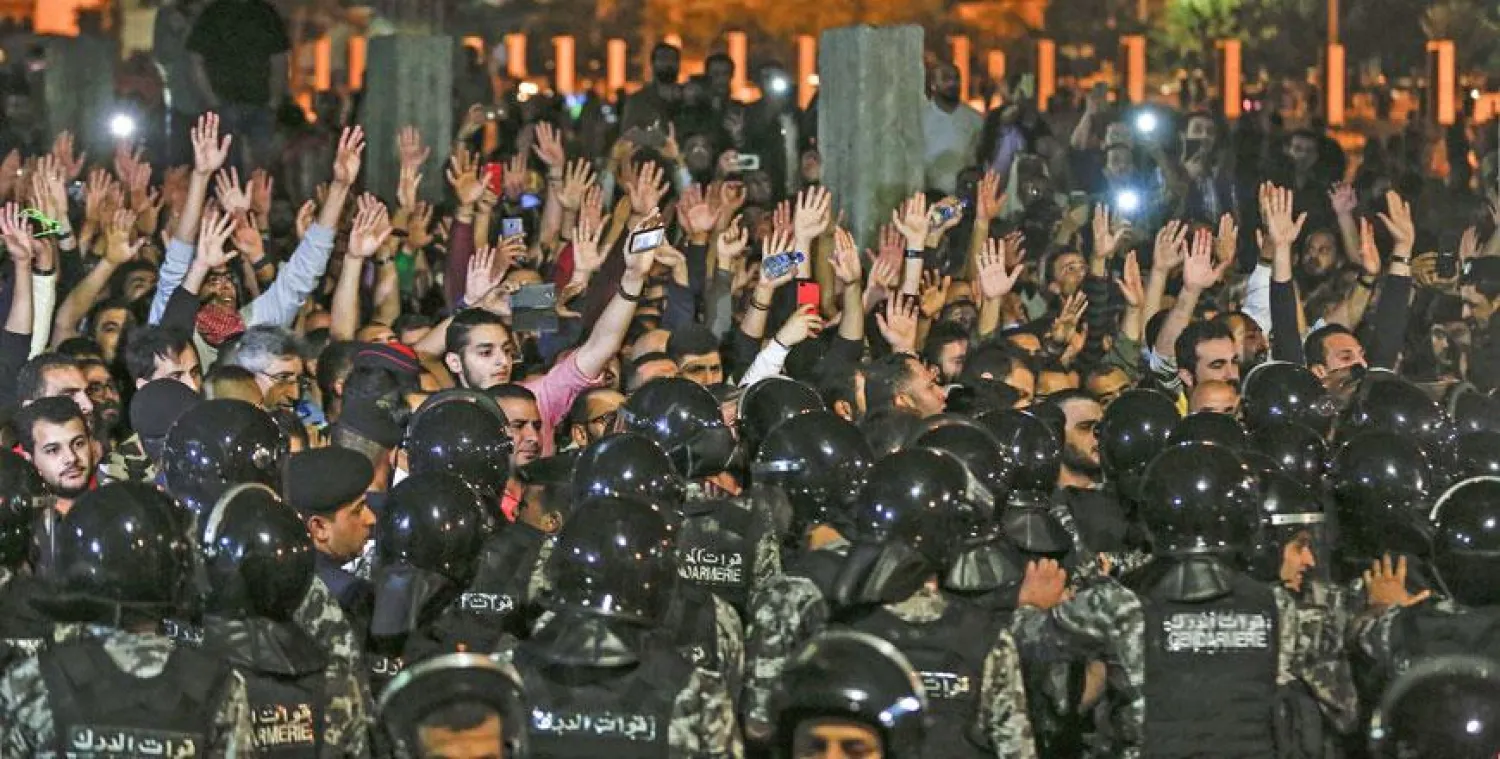Jordanian public institutions have gone on alert to contain mounting protests that kicked off four days ago over a new income tax draft-law and price hikes, as unions called for a general strike across the country next Wednesday.
King Abdullah II asked to meet with Prime Minister Hani Mulki at his office Monday to discuss the protests in Amman and other governorates.
After a meeting on Sunday, the Jordanian Senate sent to the King two suggestions on the matter: Ask the government to withdraw the draft, and to issue a royal decree for holding a special session of the Parliament on Monday during which deputies will re-send the bill to the Senate.
Senate Speaker Faisal al-Fayez called for a “comprehensive national dialogue” on the law.
He emphasized the importance of adopting the principle of collective participation of the Jordanian society within a national dialogue aimed at agreeing on a modern law that promotes the principles of transparency and equality.
The House members are expected to reject the amended income tax draft-law and forward it to the Senate, which would return the bill to the government as stipulated by the Constitution.
Sources predicted that the government would resign in the coming days.
Last month, the government proposed the law that is aimed at raising taxes on employees by at least five percent and on companies by 20 to 40 percent.
“The legislature made a recommendation to His Majesty King Abdullah to convene the Parliament for an extraordinary session to be held as soon as possible to bring an end to the income tax crisis,” Jordanian news agency Petra quoted Speaker of the House of Representatives Atef Tarawneh as saying following a meeting with Mulki and the Professional Associations Council at the Lower House.
Tarawneh said: "We are forming a committee to follow up the dialogue, which we hope will be positive and fruitful.”
Parliament is not bound by the decision of the International Monetary Fund but committed to the interest of the Jordanian people, he added.









